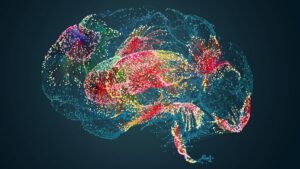Transforming Our World: The Impact of AI Agents

The Rise of AI Agents
Imagine you are excited about attending a much-anticipated concert. As soon as tickets go on sale, you know you have to act quickly to secure your spot. To improve your chances, you decide to use a multi-agent AI system. One agent is focused on scanning ticket websites to find available tickets, another manages your budget to make purchases at a moment’s notice, and a third analyzes seating options to find the best available spots based on your preferences. Together, these AI agents seamlessly navigate the ticket-buying process across various platforms, ensuring you manage to get your tickets.
The Competitive Nature of Ticket Buying
After celebrating your win, you notice many other seats were purchased just as quickly. This reveals a reality where many fans are using similar AI systems, intensifying the competition for tickets. While this technology helps you, it also makes access more challenging for those without similar assistance, showcasing a complex issue with the rise of advanced AI.
Understanding AI Agents
AI agents are advanced autonomous systems capable of understanding your goals and executing actions on your behalf. They can collaborate with other intelligent systems to enhance our daily experiences. These agents can help us manage various aspects of life, from organizing our appointments to supporting our health. The challenge lies in how these systems influence crucial decisions in our lives.
Bridging the Capability Gap
Current AI technology excels at tasks that are well-defined but struggles with open-ended goals. AI agents aim to fill this gap by developing systems that can make decisions for users based on specific objectives rather than simply producing outputs. Research scientist Iason Gabriel from Google DeepMind mentions that these systems will operate without continual human oversight, navigating complex challenges over longer periods.
The key distinction between standard AI and these agents is their decision-making abilities. While chatbots and language models are trained to recognize patterns and produce responses, agent-based systems can strategize and adapt their actions for better results.
Ethical Concerns in AI Alignment
To ensure AI operates in a way that benefits everyone, clear principles must guide these systems. Gabriel emphasizes that agents should be helpful to users without causing harm to others. Importantly, users should maintain independence in how they utilize advanced AI technologies, free from excessive interference by developers or societal forces.
As AI agents advance and become integral in various areas of life, it is crucial to consider how they interact with individuals with differing beliefs and needs. For instance, a career coaching agent should support a user by analyzing personal skills while understanding the broader job market and its implications on society.
Collaboration for Better AI Development
To tackle the complexities of aligning AI with human values, collaboration across various sectors—technology, government, and academia—is essential. Google has partnered with companies like Anthropic and OpenAI to form the Frontier Model Forum, which seeks to advance AI development responsibly and safely.
In recent initiatives, Google introduced the Digital Futures Project and launched a $20 million Google.org fund to encourage discussions around responsible AI development. These efforts highlight the importance of addressing potential risks associated with powerful AI systems.
The Importance of Cooperation Among AI Agents
Looking ahead, it is crucial for AI agents to communicate and cooperate effectively with one another. For example, if several agents are attempting to book flights simultaneously, proper coordination is necessary to avoid conflicts. Researchers are working on frameworks that allow agents to share information, understand each other’s capabilities, and make cooperative decisions.
Promoting Collective Well-Being
An essential aspect of developing AI agents involves creating a set of built-in assumptions guiding their behaviors towards promoting collective well-being. Legal frameworks and policy regulations will need to adapt to ensure these systems are not misused and remain accessible to those who may benefit most.
Researchers are dedicated to exploring the social and ethical consequences surrounding AI systems. Understanding these implications is vital for designing technology responsibly and creating effective governance structures.
Maximizing Human Agency with AI
Ultimately, these tech advancements must enhance human agency and autonomy. Efforts should focus on building inclusive AI systems that consider various user backgrounds, languages, and accessibility needs. In our complicated digital environment, AI agents can simplify tasks, understand user preferences, and fulfill individualized needs. By leveraging AI effectively, we can accomplish more with less effort, creating a more efficient and user-friendly digital landscape.
As Gabriel states, considering technology as an "agency enhancer" leads us towards a future where AI helps streamline our lives, allowing us to focus on what truly matters to us.






